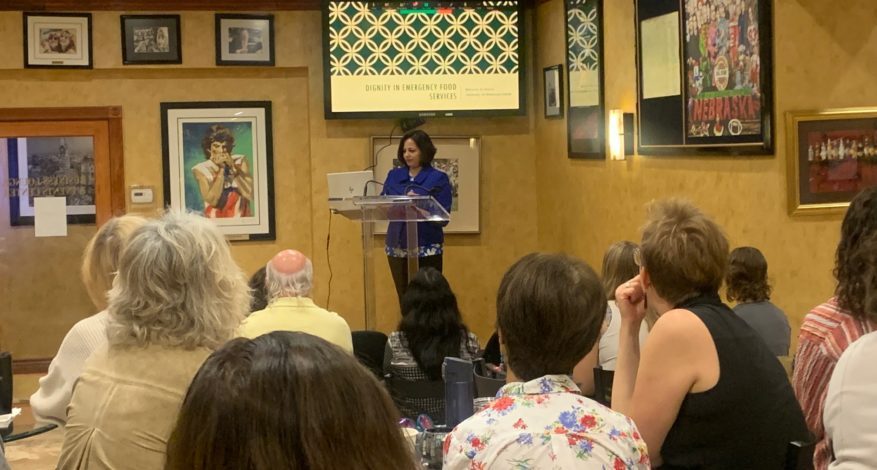Food Justice Seminar Focuses on Dignity in Emergency Food Services
Statistics show 45 million to 55 million people in the United States are food insecure. While this represents 12-15 percent of the population, the rates are higher in some segments. Single women with children and people of color are disproportionately affected by food insecurity, according to Dr. Rebecca de Souza, professor of communication at the University of Minnesota – Duluth and author of the book “Feeding the Other.”
de Souza was speaker for the first Food Justice seminar presented by the newly formed Soil to Sustenance group, of which Saving Grace Perishable Food Rescue, Together, Society of St. Vincent de Paul and Whispering Roots are organizers.
While providing dignity in emergency food services is complex, de Souza outlined ways it can be achieved:
- Make high-quality food available
- Provide high-quality service
- Acknowledge and intervene in racist structures
“Food has meaning, food has cultural and emotional significance, and food communicates value to people,” she said.
“Food allows people to feel like they belong and have a place in society, and it allows them to nourish their families.”
Her presentation includes suggestions for changes in the way organizations operate and actions they can take so they are promoting dignity in their services.
The Food Justice series creates opportunities for growth, continuing education and the sharing of best practices. Seminars will focus on topics many organizations working in food insecurity grapple with in an effort to spark conversations that might be difficult, but necessary.


